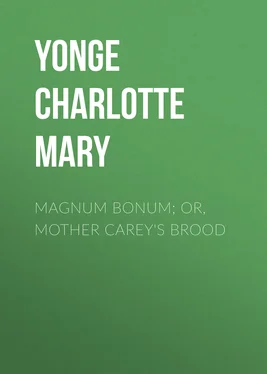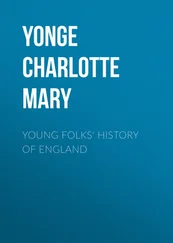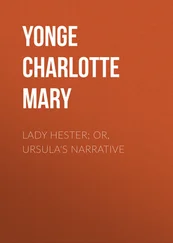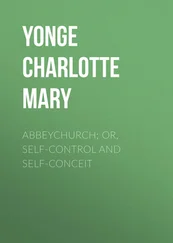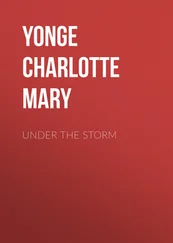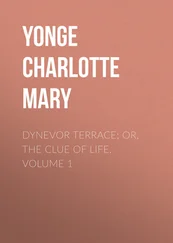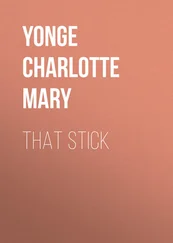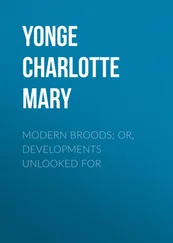Charlotte Yonge - Magnum Bonum; Or, Mother Carey's Brood
Здесь есть возможность читать онлайн «Charlotte Yonge - Magnum Bonum; Or, Mother Carey's Brood» — ознакомительный отрывок электронной книги совершенно бесплатно, а после прочтения отрывка купить полную версию. В некоторых случаях можно слушать аудио, скачать через торрент в формате fb2 и присутствует краткое содержание. Издательство: Иностранный паблик, Жанр: foreign_prose, literature_19, Европейская старинная литература, foreign_antique, на английском языке. Описание произведения, (предисловие) а так же отзывы посетителей доступны на портале библиотеки ЛибКат.
- Название:Magnum Bonum; Or, Mother Carey's Brood
- Автор:
- Издательство:Иностранный паблик
- Жанр:
- Год:неизвестен
- ISBN:нет данных
- Рейтинг книги:5 / 5. Голосов: 1
-
Избранное:Добавить в избранное
- Отзывы:
-
Ваша оценка:
- 100
- 1
- 2
- 3
- 4
- 5
Magnum Bonum; Or, Mother Carey's Brood: краткое содержание, описание и аннотация
Предлагаем к чтению аннотацию, описание, краткое содержание или предисловие (зависит от того, что написал сам автор книги «Magnum Bonum; Or, Mother Carey's Brood»). Если вы не нашли необходимую информацию о книге — напишите в комментариях, мы постараемся отыскать её.
Magnum Bonum; Or, Mother Carey's Brood — читать онлайн ознакомительный отрывок
Ниже представлен текст книги, разбитый по страницам. Система сохранения места последней прочитанной страницы, позволяет с удобством читать онлайн бесплатно книгу «Magnum Bonum; Or, Mother Carey's Brood», без необходимости каждый раз заново искать на чём Вы остановились. Поставьте закладку, и сможете в любой момент перейти на страницу, на которой закончили чтение.
Интервал:
Закладка:
Still she felt as if her church going had its reward, for Dr. Leslie met her a little way outside the porch, and, after asking after her boy, said—
“I hope his brother explained to you that Higg is quite to be trusted. He always knows what he can do, and when a case is beyond him. If I had come there would have been nothing for me to do.”
“There!” said Jock, triumphantly to his brother and sister.
“Much you know about it,” grunted Bobus.
“Mother Carey was right. She always is,” persisted Jock.
“It would have been just the same if the man had known nothing about it,” said Janet. “I hate your irregular practitioners, and it was very weak in mother to encourage them.” Then, as Bobus snarled at the censure of his mother—“You said so yourself yesterday.”
“I didn’t say any such beastly thing of mother. She could tell whether it was just a simple dislocation, and she was right, having ever so much more sense than you , Janet.”
“You didn’t say so yesterday,” repeated Janet.
“I don’t like irregular practitioners a bit better than you do, Janet,” said Bobus with dignity; “and I thought it right to call in a qualified surgeon, but I never said mother couldn’t judge.”
However, Bobus would not countenance the irregular practitioner by escorting his mother to River Hollow; and as he was in one of the surly moods in which he was dangerous to any one who meddled with him, especially Janet, his mother was glad not to have to keep the peace between them.
Janet, though not in the most amiable mood, chose to go with her, and they set forth by the shorter way, across Belforest park, skirting the gardens where the statues stood up, looking shivery and forlorn, as if they were not suited to English winters, and the huge house looked down on them like a London terrace that had lost its way, with a dreary uninhabited air about it. Even by this private way they had two miles and a half of park to traverse, before they reached a heavy miry lane, where the beds of mud, alternated with rugged masses of stone, intended to choke them. It led up between high hedges to the brow of one of the many hills of the county, whence they could look down into the hollow, a perfect cup, scooped out as it were between the hills that closed it in, except at the outlet of the river that intersected it, making the meadow on either side emerald green, even in the winter. Corn lands of rich red soil, pasture fields dotted with cattle, and broad belts of copse wood between clothed the slopes; and a picturesque wooden bridge, with a double handrail, crossed the river. The farm-house, built of creamy stone, stood on the opposite side of the river, some way above the bank, and the mother and daughter agreed that it deserved to be sketched next summer.
They had to pick their way down a lane that was almost a torrent, and emerging at the foot of the bridge, they stood still in amazement, for in the very centre was something vibrating rapidly, surrounded by a perfect halo of gold and scarlet. It was like a gigantic humming-bird moth at first, but it presently resolved itself into a little girl, clad in something dark purple below, and above with a bright scarlet cloaklet, which flew out and streamed back, beneath the floating locks of glistening gold that glinted in the sun, as with a hand on each rail of the bridge she swung herself backwards and forwards with the most bewildering rapidity. Suddenly becoming aware of the approach of strangers, she stood for one moment gazing in astonishment, then fled so swiftly that she almost seemed to fly, and vanished in the farm buildings!
They stood laughing and declaring that Babie would be convinced that fairies came out on Sunday, then crossed the river and were beginning to ascend the path when a volley of sounds broke on them, a shrill yap giving the alarm, louder notes joining in, and the bass being supplied by a formidable deep-mouthed bark, as out of the farmyard-gate dashed little terrier, curly spaniel, slim greyhounds, surly sheep-dog of the old tailless sort, and big and mighty Newfoundland, and there they stood in a row, shouting forth defiance in all gradations of note, so that, though frightened, Carey and Janet could not help laughing, as the former said—
“This comes of gadding about on Sunday.”
“If we went on boldly they would see we are not tramps,” said Janet.
“Depend on it they will let no one pass in Church time.”
So it proved, for Janet’s attempt to move forward elicited a growl from the sheep-dog, and a leap forward of the “little dogs and all,” which daunted even her stout heart.
However, calls were heard, and the bright vision of the bridge came darting among the dogs, scolding and driving them in, and Allen himself came out to the gate, all bandaged up on one side, but waving his arm as a signal to his mother and sister to advance. They did so nervously but safely, while the growls of the sheep-dog sounded like distant thunder, and the terrier uttered his protest from the door. Allen declared himself much better, and said he should be quite able to go home to-morrow, only this was such a jolly place; and then he brought them into the beautiful old kitchen with a magnificent open hearth, inclosed by two fine dark walnut-wood settles, making a little carpeted chamber between them. Here Allen had the farmer’s armchair and a footstool, and with “Foxe’s Martyrs” open at a flaming illustration on the little round table before him, appeared to be spending his Sunday as luxuriously as the big tabby cat who shared the hearth with him.
“They have only one service at Woodbridge, morning and afternoon by turns,” he explained, “and so they are all gone to it.”
“Who is that girl?” asked Janet.
“Undine,” he coolly replied.
“She certainly appeared on the bridge,” said his mother, “but I should think Undine’s colouring had been less radiant—more of the blue and white.”
“She had not a whiter skin nor bluer eyes,” said Allen, “nor made herself more ridiculous either. Did you ever see such hair, mother? Hullo, Elfie. There she is, peeping in at the window, just as Undine did; Come in!” he cried at the door. “No, not she,” as he returned baffled; “she is off again!”
“But, Allen, who is she? Not Farmer Gould’s daughter.”
“Of course not. Don’t you know she was fished up in a net, and belonged to a palace under the ocean full of pearls and diamonds. She took such a fancy to me that no power on earth would make her go to Church with the rest. She ran away, and hid, and when they were all gone she came out and curled herself up at my feet and chattered, till I happened to offend her majesty, and off she went like a shot. I’m only thankful that she did not make her pearly teeth meet in my finger in true Undine fashion.”
“But who is she, really?”
“I can’t quite make out. They call her Elfie, and she calls them grandpapa, and uncle and aunt, but she has been sitting here complaining of everything being cold and dull, and talking about seas and islands, palm-trees, and coral caves, and humming birds, yes, and black slaves, and strings of pearls, so that if she is romancing, like Armine and Babie, she does it uncommonly naturally.”
They saw no more of this mysterious little being, and the family soon returned from Church. The father was a fine, old-fashioned yeoman, the son had the style of a modern farmer, and the wife was so quiet, sensible, and matronly as to be almost ladylike. Her two little girls were dressed as well as Essie and Ellie, but all were essentially commonplace. They were very kind and friendly, anxious that Allen should stay as long as was good for him, as well as pressing in their hospitality to the two ladies. Mr. Gould was very anxious to drive them home in his gig, though he allowed that the road was very rough unless you went through Belforest Park, and that he never did.
Читать дальшеИнтервал:
Закладка:
Похожие книги на «Magnum Bonum; Or, Mother Carey's Brood»
Представляем Вашему вниманию похожие книги на «Magnum Bonum; Or, Mother Carey's Brood» списком для выбора. Мы отобрали схожую по названию и смыслу литературу в надежде предоставить читателям больше вариантов отыскать новые, интересные, ещё непрочитанные произведения.
Обсуждение, отзывы о книге «Magnum Bonum; Or, Mother Carey's Brood» и просто собственные мнения читателей. Оставьте ваши комментарии, напишите, что Вы думаете о произведении, его смысле или главных героях. Укажите что конкретно понравилось, а что нет, и почему Вы так считаете.
